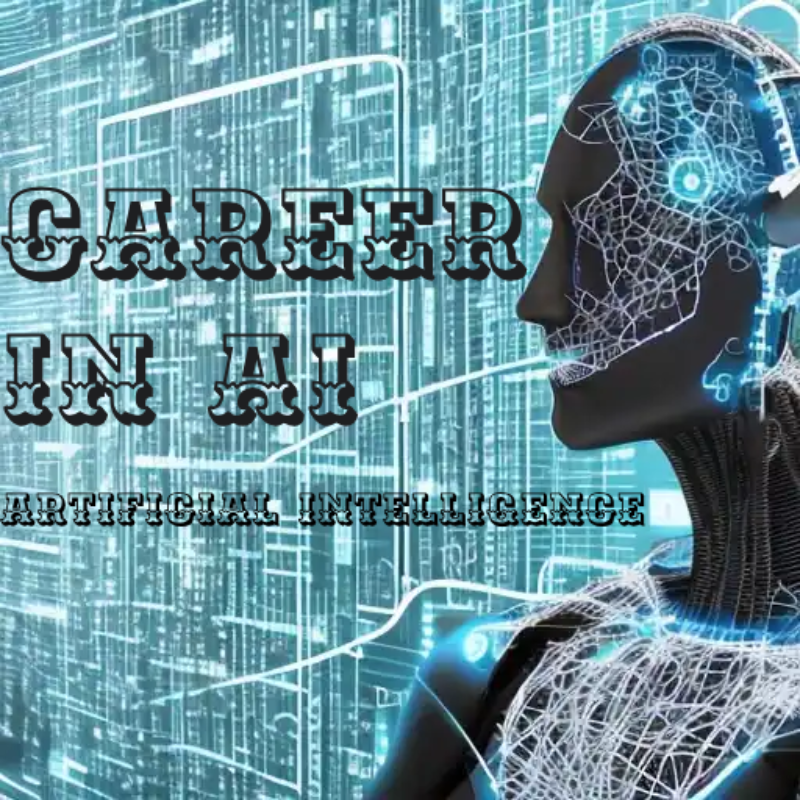
A career in artificial intelligence (AI) presents a bright future with rapid employment expansion. Here are a few strong arguments for why it’s a wise investment:
- Job need: There is a significant need for competent candidates, as evidenced by the 32% growth in hiring for AI specialists in recent years.
- Talent Gap: Skilled workers are in high demand in the AI area due to a noticeable talent gap.
- Longevity: AI is here to stay and is becoming more and more prominent. As the area develops, there are more and more options for people interested in jobs in AI.
- Job Variety: AI includes a wide range of positions, including research, user experience design, software engineering, and more. A niche that fits your interests and skill set can be found.
- Potential Salary: AI specialists frequently receive good pay. Software engineers, for example, make an average of ₹6,40,107 annually.
The average annual income for user experience designers is ₹5,67,9673.
Career in Artificial Intelligence AI Researchers: ₹2,46,798 annually on average.
If you’re interested in working with cutting-edge technology, constructing robots, and programming, an AI profession can be a great fit for you!
Of course! Technical and soft skills are both necessary for success in an AI career. Now let’s focus on the most important ones:
Languages for Programming: Python is extensively used in deep learning, neural networks, data mining, and visualization in artificial intelligence and data science.
Java is frequently used for activities linked to artificial intelligence, such as intelligence programming, procedural programming, and genetic programming.
C++ is used to create sophisticated AI components like neural net functions and artificial neuron models.
Julia: Well-liked for machine learning because of its availability of ML packages and performance.
1. Frequently utilized in neural networks, statistical computing, and machine learning.

- Data Science Skills: Machine Learning: Expertise in model selection, evaluation, and machine learning techniques.
Data analysis: comprehending, organizing, cleansing, and feature engineering of data.
3. Mathematical Concepts: Probability and Statistics: A Prerequisite to Comprehending the Behavior of AI Algorithms.
4. Algorithms: A thorough comprehension of algorithms and how to optimize them.
5. Technical Skills: Programming Proficiency: Capacity to utilize libraries and develop effective code.
6. Deep learning: experience with recurrent, convolutional, and neural networks.
7. Data Handling: overseeing storage, data pipelines, and huge datasets.
8. Soft Skills: Problem-Solving: Capacity to approach challenging AI problems in an original way.
9. Effective Communication: Working in teams and communicating AI ideas to stakeholders that aren’t technical.
10. Adaptability: staying abreast of AI developments and picking up new skills and methods.

Many Indian schools and universities offer suitable courses if you’re interested in a career in artificial intelligence (AI. Here are a few noteworthy choices:
1. IIT Hyderabad IIT Hyderabad provides AI-related programs and is renowned for its strong research focus and high-quality teaching.
2. IIT Jodhpur: AI courses and associated specialties are offered by this esteemed IIT, Jodhpur.
Chandigarh University: Provides AI programs at the BTech and MTech levels.
4. Despite not being traditional universities, Coursera, Udemy, and edX are online learning environments that offer top-notch AI courses for independent study.
Among the top universities in India for AI programs are D.Y. Patil College of Engineering, Woxsen University, Bennett University, Chennai Institute of Technology, Brainware University, and Shiv Nadar University Chennai.
Career in Artificial intelligence AI Eligibility Criteria :
The prerequisites for Artificial Intelligence (AI) courses might change depending on the school and the course’s level. These are a few standard specifications:
Bachelor’s Degree: Generally, you’ll need a bachelor’s degree in a discipline like computer science, IT, statistics, or STEM (science, technology, engineering, and mathematics).
Candidates’ 10th and 12th grade grades should have at least 50% marks.
2. Competency in Programming: Expertise in programming languages such as Python, Java, or other pertinent languages is necessary.
3. Interest and Background: Some AI courses may just call for a passion for AI, while others may require prior experience with programming or mathematics.
4. Specific Entrance Exams: Candidates may be required to sit for university-specific entrance examinations in order to be considered for certain AI programs.
It is advisable to verify the particular prerequisites for the AI course you are considering, as they may differ throughout organizations and courses. I wish you well as you go with AI!

